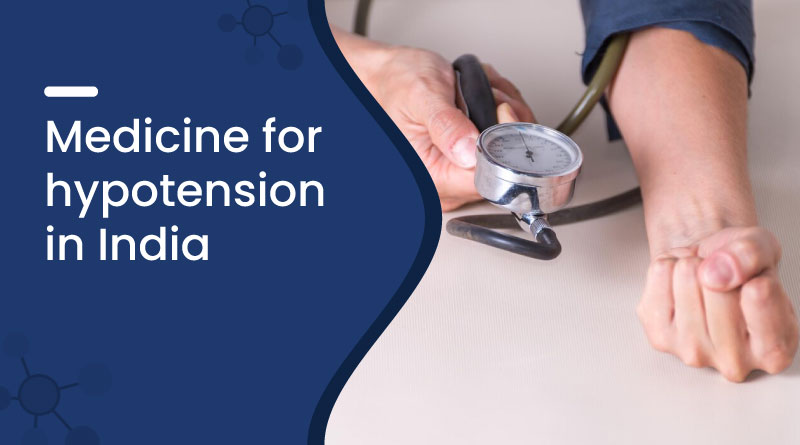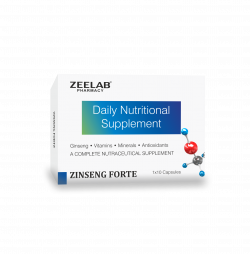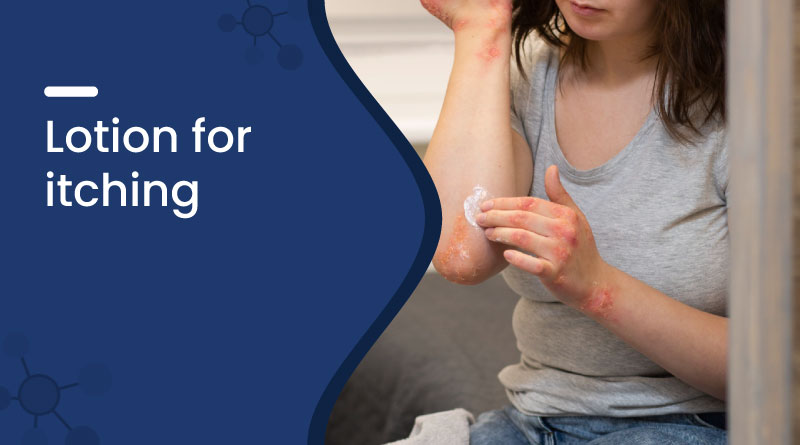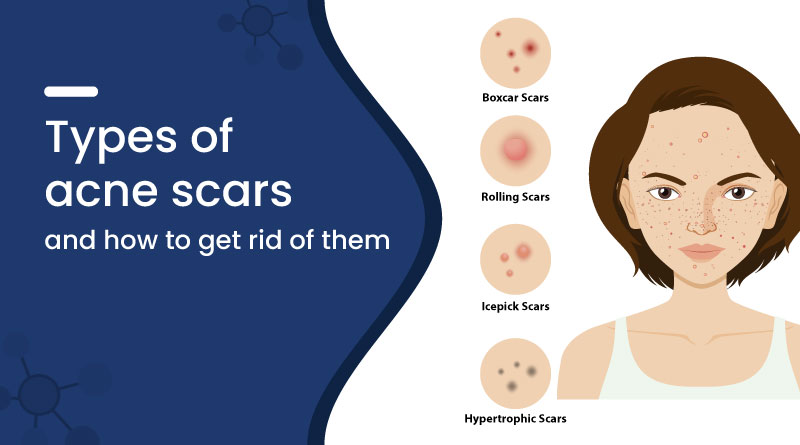Medicine for Hypotension in India


Medications for Hypotension (low blood pressure) are generally prescribed when non-drug treatments like increasing fluid/salt intake and salt consumption are not effective. This medication works by increasing blood volume and constricting blood vessels. It is especially used in orthostatic hypotension (a fall in blood pressure on standing or sitting). Midodrine tablets, droxidopa capsules, norepinephrine, and dopamine injections are generic medicines for treating Orthostatic Hypotension, neurogenic, and cardiogenic shock. Licorice root, rosemary oil, ginger, and tulsi are herbal medicines that treat low blood pressure. Take the medicine as prescribed by the Doctor.
Medicines for Low Blood Pressure (Hypotension)
Low blood pressure, also called hypotension, may cause dizziness, fainting, and fatigue. Doctors sometimes prescribe medicines to help stabilize blood pressure when lifestyle changes are not enough. The table below lists commonly used medicines and their benefits.
| Medicine | Description | Best Use |
|---|---|---|
| Fludrocortisone | A corticosteroid that helps the body retain sodium, increasing blood volume and raising blood pressure. | Chronic hypotension or orthostatic hypotension |
| Midodrine | An alpha-adrenergic agonist that constricts blood vessels to improve circulation and raise blood pressure. | Postural/orthostatic hypotension |
| Droxidopa | Boosts norepinephrine levels in the body to regulate blood pressure. | Neurogenic orthostatic hypotension (NOH) |
| Pyridostigmine | Improves nerve signals to blood vessels, reducing symptoms of orthostatic hypotension. | Used with other medicines for better control |
| Erythropoietin (EPO) | Increases red blood cell production in anemic patients, indirectly improving circulation and blood pressure. | Patients with anemia-related hypotension |
| Caffeine | Stimulates the nervous system and provides temporary relief from low blood pressure symptoms. | Short-term relief from fatigue or dizziness |
| NSAIDs (Indomethacin) | Occasionally used to increase blood pressure by affecting kidney function and vascular tone. | Selected cases under medical supervision |
Medicines for Low BP (Hypotension)
Low blood pressure, also known as hypotension, can cause dizziness, fainting, and fatigue. Treatment depends on the underlying cause, but in severe or persistent cases, doctors may prescribe specific medicines to help stabilize blood pressure. Below are commonly used medicines for managing hypotension.
Fludrocortisone
Fludrocortisone is a corticosteroid that helps the body retain sodium, which increases blood volume and raises blood pressure. It is often prescribed for chronic hypotension or orthostatic hypotension.
Midodrine
Midodrine works as an alpha-adrenergic agonist that tightens blood vessels, improving circulation and raising blood pressure. It is commonly prescribed for patients with postural hypotension.
Droxidopa
Droxidopa increases norepinephrine levels in the body, helping to regulate blood pressure. It is mainly used in neurogenic orthostatic hypotension (NOH), a condition related to nervous system disorders.
Pyridostigmine
Pyridostigmine improves nerve signals to blood vessels, reducing symptoms of orthostatic hypotension. It is sometimes used in combination with other medicines to provide better control of low blood pressure.
Erythropoietin (EPO)
In patients with anemia and low blood pressure, Erythropoietin helps increase red blood cell production, which indirectly improves circulation and stabilizes blood pressure levels.
Caffeine
Caffeine is not a long-term solution but may be used occasionally to raise blood pressure temporarily. It stimulates the nervous system and provides short-term relief from hypotension-related fatigue or dizziness.
NSAIDs (Indomethacin)
Non-steroidal anti-inflammatory drugs (NSAIDs), such as Indomethacin, may be used in some cases to increase blood pressure. They work by affecting kidney function and vascular tone, but are only prescribed under medical supervision.
Best Low BP Tablet Name
Doctors may prescribe different low BP medicine depending on the cause of hypotension. The most common low BP tablet options include Fludrocortisone, Midodrine, and Droxidopa. Each BP low tablet name works differently, either by improving blood flow, increasing blood volume, or tightening blood vessels. Choosing the right medicine for low blood pressure depends on medical evaluation.
Popular BP low medicine name options are Fludrocortisone for chronic hypotension, Midodrine for postural hypotension, and Droxidopa for neurogenic hypotension. These low blood pressure medicine options help stabilize symptoms such as dizziness, fainting, and fatigue. Always take these tablets under medical guidance.
Herbal remedies to treat Hypotension:
Herbal remedies for hypotension (low blood pressure) focus on safe and potentially effective herbs, general methods, a balanced diet, and lifestyle changes.
Herbal medicine for hypotension relief
| Medicine Name | Composition | Benefits |
|---|---|---|
| Licorice Root | Glycyrrhizin | Increasing cortisol levels reduce sodium excretion and raise blood pressure. |
| Rosemary | Carnosic acid, Rosmarinic acid | Improve blood circulation and control blood pressure |
| Ginger | Gingerol, Shogaol | Improve blood circulation and control blood pressure. |
| Ginseng | Ginsenosides | Increases blood pressure in hypotensive patients and supports heart function. |
| Angelica | Ferulic acid, Z-ligustilide | Improve blood circulation and increase blood pressure in hypotensive individuals. |
| Hawthorn | Quercetin and Proanthocyanidins | Improve heart function and control blood pressure. |
| Astragalus | Saponins, Flavonoids, Polysaccharides | Control hormonal imbalance and improve blood circulation. |
| Gotu Kola | Triterpenoids, Asiaticoside | Improve blood flow and brain function. |
| Black Tea | Theaflavins, Caffeine | Give a temporary rise in blood pressure |
The dosage of the herbal medicine should be used as recommended by the Doctor.
Benefits of medication for hypotension:
- Increases Blood Pressure: Restores normal blood pressure levels in people with hypotension.
- Improves Blood circulation: It prevents dizziness, fainting, and the risk of falls.
- Treats Orthostatic Hypotension: Prevents sudden drops in BP when changing positions (like standing up quickly).
- Supports Heart Function.
- Prevents hypotension-associated neurogenic and septic shock
What is medication for hypotension used for?
Medication for hypotension is effective in the treatment of blood pressure when it is too low, on standing, especially in Orthostatic hypotension.
How to take hypotension medication?
Take the medicine as prescribed by the Doctor. The dosage and duration of the medicine should be used as recommended by the doctor. Do not exceed the Dosage.
How does medication for hypotension work?
Medication for hypotension treatment works by increasing blood volume, constricting blood vessels, and controlling the fluid and electrolyte balance of the body.
When should I take Anti-hypotensive medicine?
Regular use of Anti-hypotensive medicine is advisable at the same time to control blood pressure. Always take the medicine as recommended by the Doctor.
What to avoid?
Alcohol alcohol: Do not take alcohol after taking blood pressure medicine, as it can lower the blood pressure.
Do not take the medicine or use it after consulting the Doctor, especially in Parkinson's medicines (Levodopa), anti-hypertensives (enalapril), and Antidepressants (amitriptyline), as this medicine can lower the Blood pressure.
General methods to control hypotension:
- Stay Hydrated; Drink plenty of water to prevent dehydration and control blood pressure.
- Regular exercise: Do moderate exercise daily, do yoga, and meditation, as it controls blood pressure.
- Salt Intake: Adequate salt intake under medical guidance is necessary to control blood pressure.
- Eating Habit: Eating small meals, completely chewing them, and avoiding large meals to prevent low blood pressure.
- Compression Stockings: Applying graduated pressure to the legs, which improves blood flow and controls blood pressure.
- Posture changes: Avoiding sudden standing up, and sitting to maintain normal blood pressure.
- Caffeine present in coffee and black tea temporarily boosts blood pressure.
Also Read - Medicine For Neck Pain in India
When to see a Doctor?
- You're on medication to treat hypotension, and your blood pressure is still low.
- If you feel dizzy, weak, and lightheaded after taking low blood pressure medicines.
- In case of confusion or difficulty concentrating after taking blood pressure medicine
- If you have any visual impairment issues, then consult your Doctor.
- If you have any breathing difficulty after the medicine intake. Consult your Doctor.
- If you observe chest pain, then connect with your physician.
Also Read - Medicine for Depression and Anxiety in India
Summary:
Medicine for hypotension treatment increases blood pressure, improves blood flow, and controls the fluid balance of the body. The selection of the best medicine will depend upon the underlying condition being treated. The Droxidopa Capsules, Midodrine Tablets, Mephentermine, and Norepinephrine injections are the common generic medicines avail for the Hypotension treatment. Natural herbs like Licorice Root, Ginger, Angelica, Gotu Kola, and Black tea are Safe and effective in improving blood circulation, hormonal imbalance, and control of blood pressure. Stay hydrated, regular exercise, adequate salt intake, eating habits, compression Stockings, and caffeine are effective methods for blood pressure control.
Frequently Asked Questions (FAQs)
Q: What are anti-hypotensive medicines?
A: Anti-hypotensive tablets are medications used to raise low blood pressure (hypotension) to normal. They improve blood flow and reduce symptoms like dizziness, fainting, and fatigue.
Q: When to prescribe?
A: They are typically prescribed when the blood pressure level is too low, or when standing, in the case of orthostatic Hypotension.
Q: Are there side effects?
A: Generally, no side effects are seen; however, some individuals may experience fluid retention and headache.
Q: Can I take these with other medications?
A: Always consult your Doctor while combining with other medicines to prevent any interaction.
Q: Can we use blood pressure medicine during pregnancy?
A: Always consult your doctor before taking any medicine in case of pregnancy.
Q: Can I stop the medication once I feel better?
A: No. Do not stop the medicine self, as it may cause withdrawal effects, and follow the recommended instructions.
Q: What should I do if I miss a dose?
A: Take it as soon as you remember. If it’s close to the next dose, skip the medicine. Do not double the dose.
Ginseng Extract Powder (42.5mg) Vitam...










 Added!
Added!